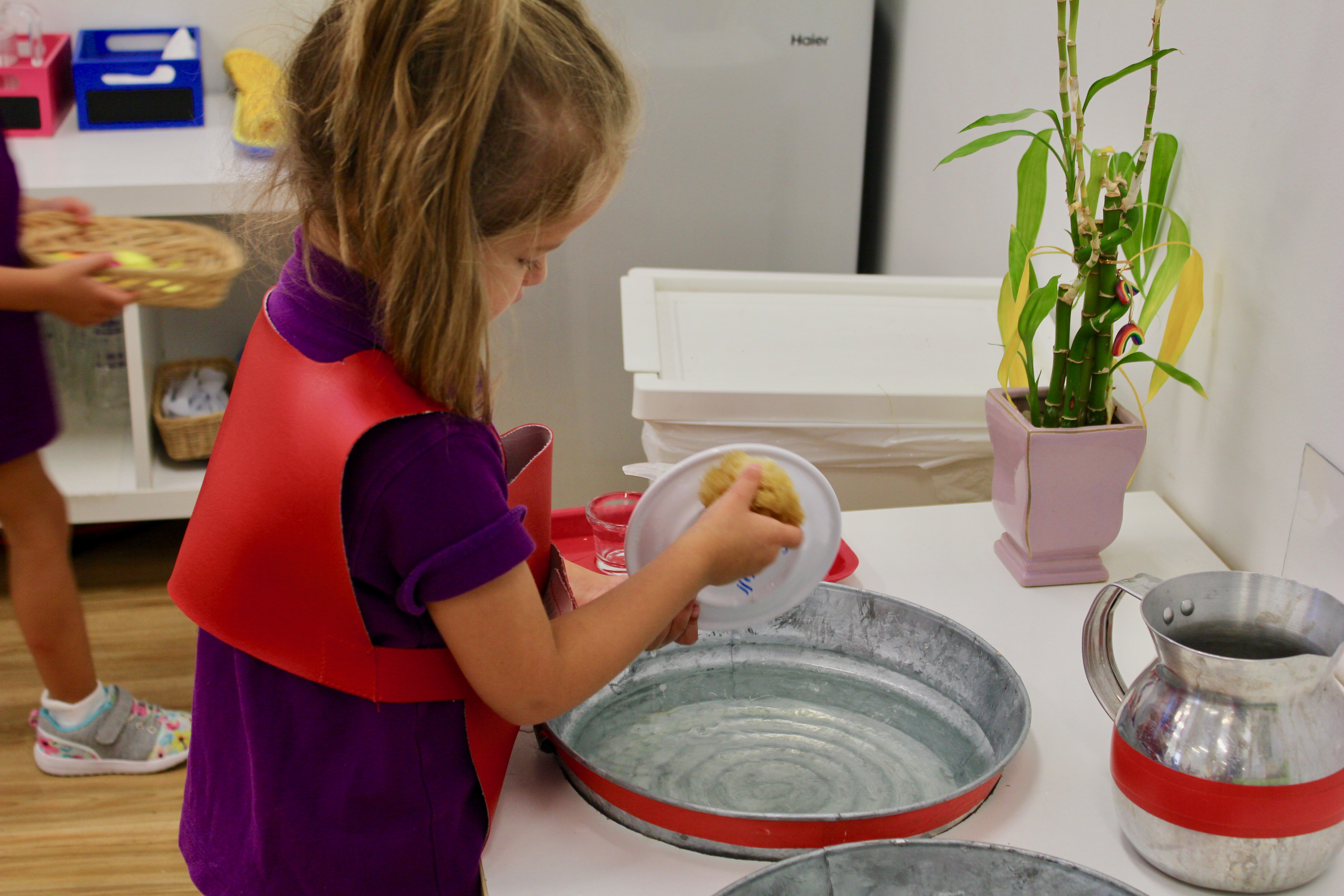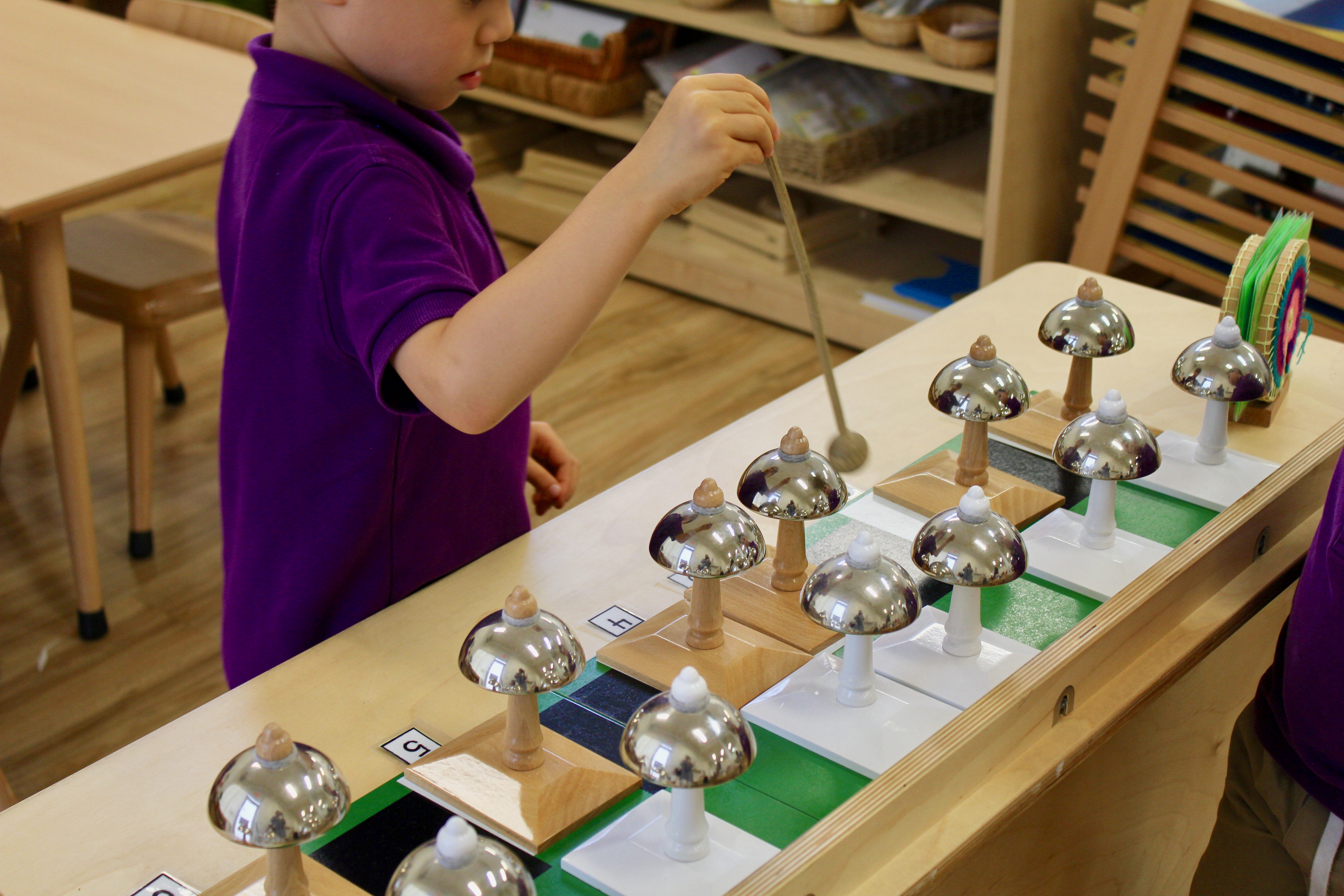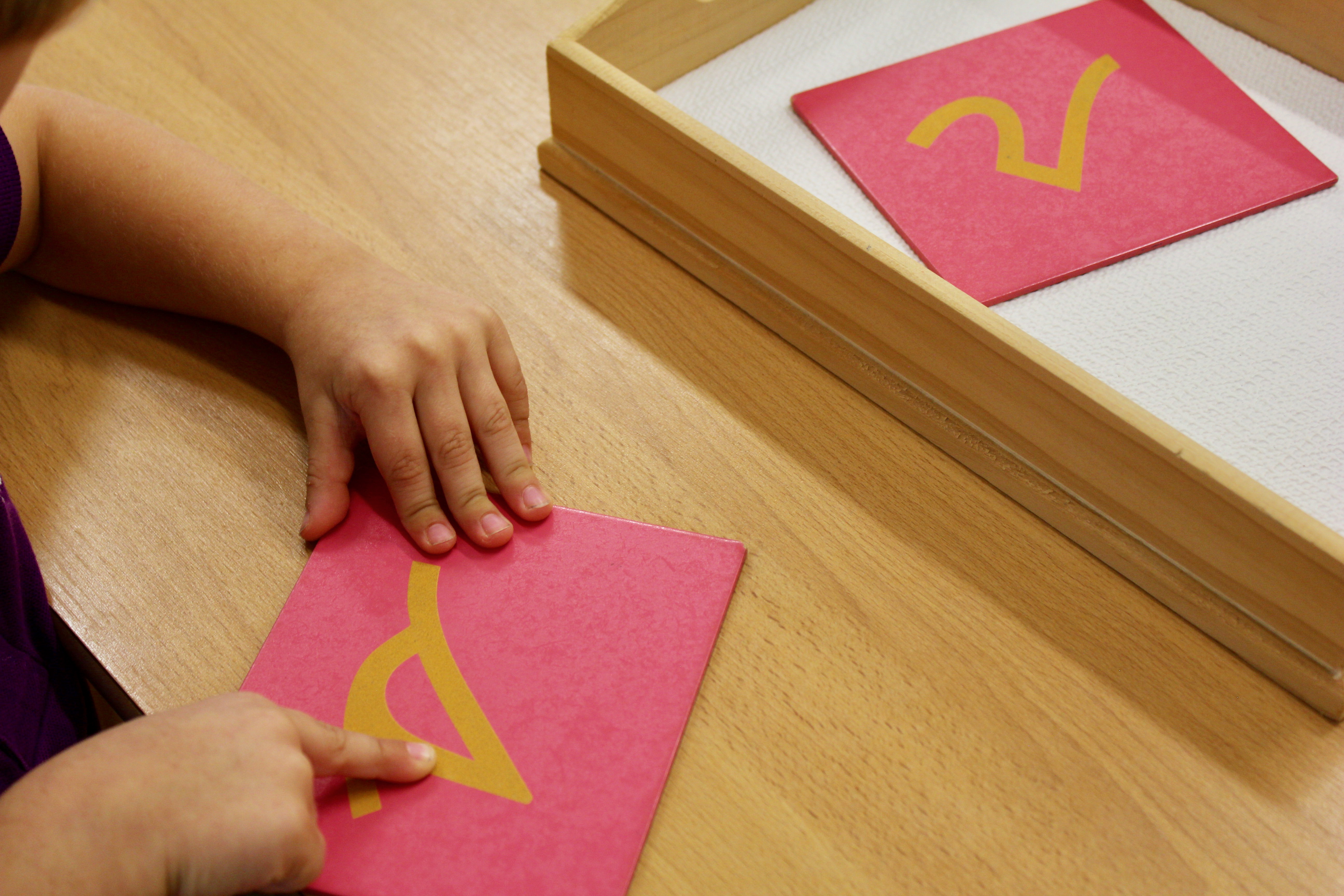3-6 years old
Children’s House
• Children the ages of 3 to 6 years possess a remarkable ability to absorb the world that surrounds them.
• Dr. Montessori believed that this period is the most critical for nurturing a child’s natural curiosity and for laying the foundation for all future development.
• Our Montessori environment is designed to encourage children in their self-directed discovery of the world.
• Interest-based activities encourage children to develop a love of learning and trust in their own ability to learn.

1. Practical Life:
Practical Life includes activities preformed in everyday life to maintain the environment and care of oneself. The purpose of Practical Life is to help the child become independent and self-sufficient, achieve order and control, refine movements, and follow action sequences that lead to concentration. These exercises cover three areas:
• Care of environment.
• Care of self.
• Development of social relationships.

2. Sensorial:
The purpose of Sensorial exercises is to help the child develop and refine the five senses. This is achieved by exposing the child to Sensorial materials during specific sensitive periods the child goes through. The Sensorial exercises enable the child to differentiate, order, classify, and describe sensory impressions with relation to dimensions, temperature, mass, color, pitch, smell, etc.

3. Mathematics:
Montessori views Mathematics as a natural mental process. The material is concrete and solid; each exercise encompasses a specific experience that is the basis for students to develop their own abstractions in the future.

4. Language:
There is a specific period during the child's development in which he/she naturally and spontaneously learns language in a subconscious manner. Utilizing Montessori material, the teacher indirectly helps the child to enrich and perfect his/her language. Language exercises are targeted to teach to read, write, and obtain an awareness of the meaning of words.

5. Cultural Activities:
An essential element in the development of children’s personalities is the actual contact they have with reality and the ability to involve themselves in it. These activities are part of the language exercises and the expansion of vocabulary: geography, biology, history, music, Spanish, and art.


